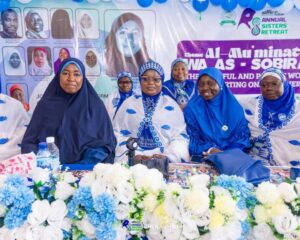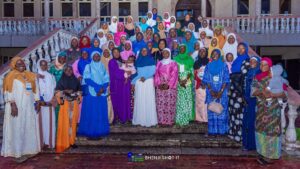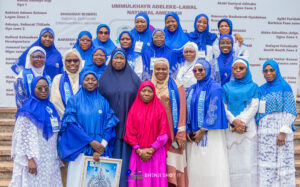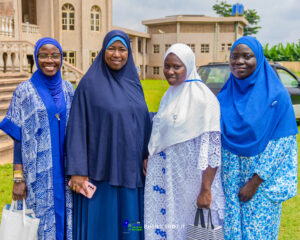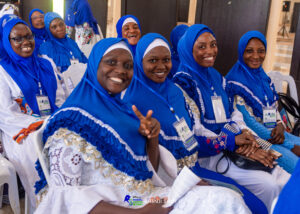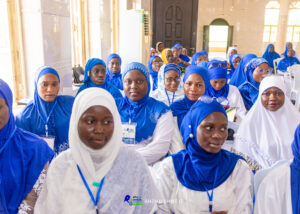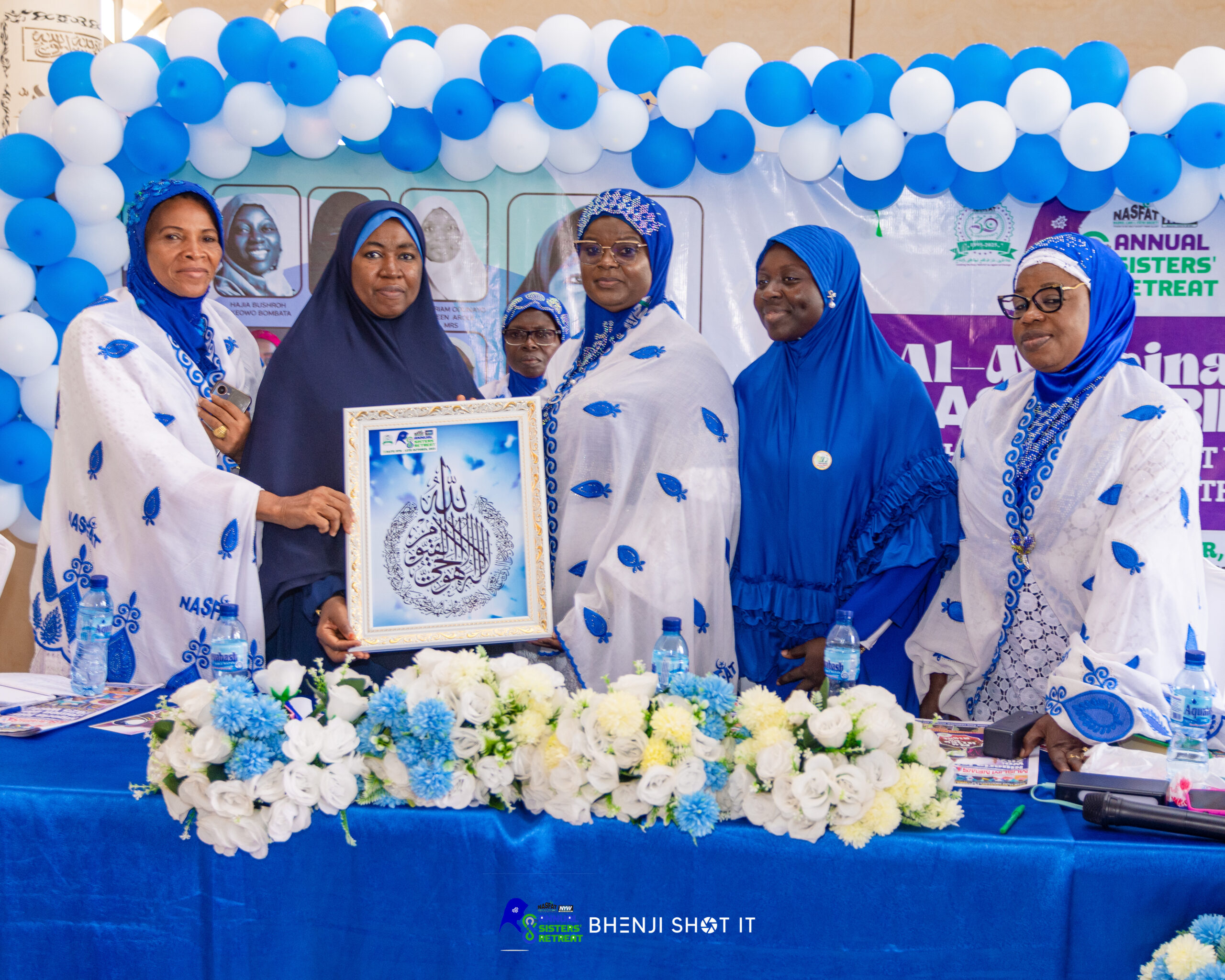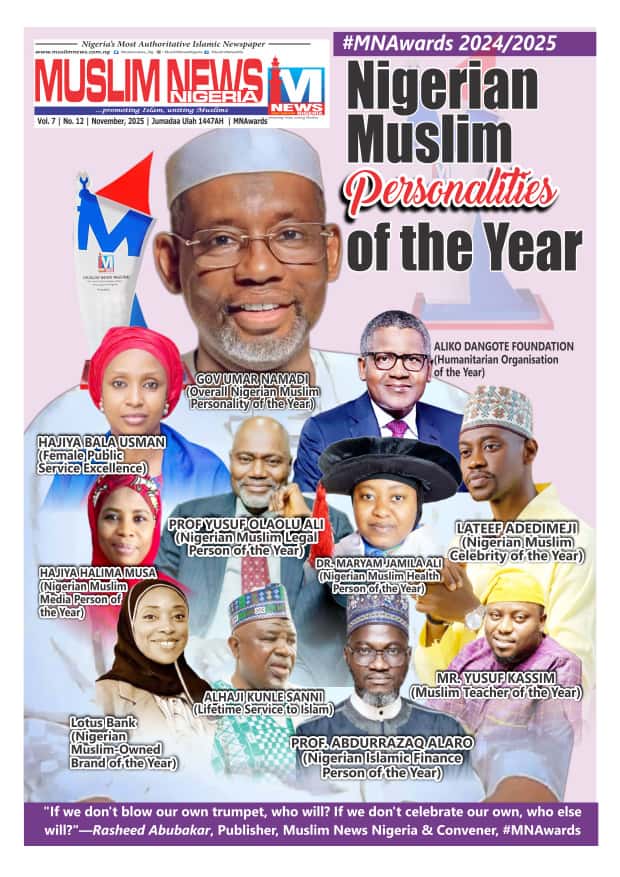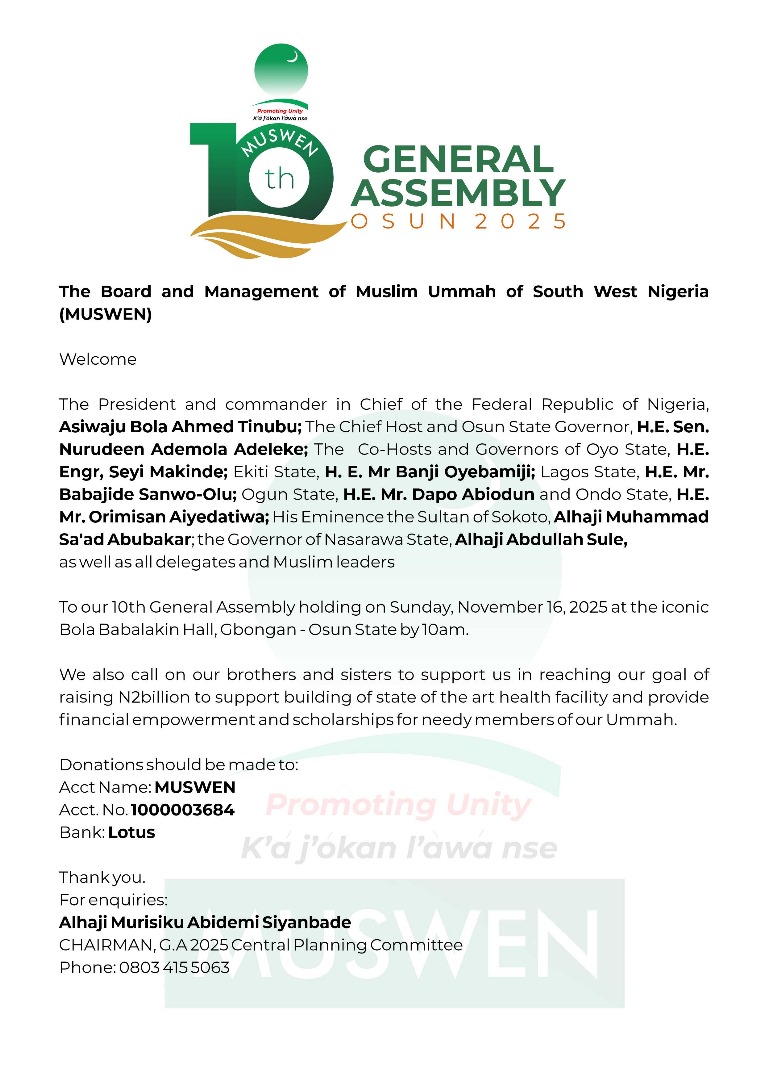Director of the Hijab Rights Advocacy Initiative, HRAI, Hajia Mutiat Orolu-Balogun, has called on Muslim women to strengthen their faith, embrace patience and pursue purposeful living rooted in Islamic values.
She made the call while speaking at the formal opening ceremony of the 2025 NASFAT Sisters’ Retreat held on Saturday, October 11, at the Aiyepe Central Mosque, Aiyepe, Ogun State.
The NASFAT Sisters’ Retreat, organised under the auspices of the NASFAT Youth Secretariat, ran from Wednesday, October 9 to Sunday, October 12, 2025. The annual event gathered Muslim women from across Nigeria for a four-day engagement focused on faith, leadership, and empowerment.
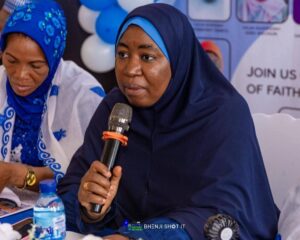
Speaking on the theme, “Al-Muminaat wa-As-Sobiraat: The Faithful and Patient Women — Supporting One Another,” Hajia Orolu-Balogun emphasized that true success for Muslim women lies in coupling spiritual devotion with personal growth and active resilience. She said Islam calls women to develop a balanced life that harmonizes faith, family, and service to society.
“Faith and patience are twin virtues that sustain the believer,” she said, referencing the Qur’anic verse, ‘Seek help through patience and prayer. Indeed, Allah is with the patient’ (Q. 2:153). “Every Muslim woman must see her trials not as punishment, but as a platform for growth and divine elevation.”
Highlighting the theological foundations of the theme, the rights advocate reminded participants that patience (sabr) is not passive endurance but active perseverance and thoughtful response to challenges. She drew from Surah Al-’Asr and Surah Az-Zumar (39:10) to explain that Allah promises limitless reward to those who remain steadfast in faith and action.
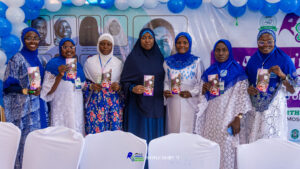
The Hijab Rights director also linked faith to practical empowerment, urging Muslim women to seek continuous learning, professional skills, and leadership roles within their communities.
“Religious devotion must go hand in hand with self-development,” she said. “The ideal Muslim woman integrates faith into every aspect of life — family, career, and community service. Leadership is not alien to Islam; it is an expression of responsibility and trust.”
She encouraged participants to cultivate resilience and critical thinking in the face of societal pressures, misinformation, and gender biases, stressing that Muslim women should act wisely and uphold justice in all circumstances.
On balancing faith, family, and social expectations, Hajia Orolu-Balogun advised women to plan their time intentionally, support one another through sisterhood networks, and prioritize both worship and self-care.
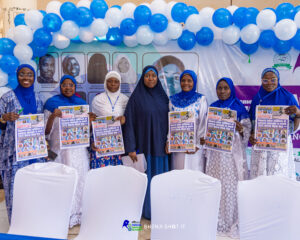
“Balance does not mean equal time for everything,” she said. “It means being fully present in every role — as a mother, wife, professional, and servant of Allah.”
In her closing remarks, Hajia Orolu-Balogun called for sustained mentorship and community collaboration through a proposed “Al-Muminaat wa-As-Sobiraat” follow-up program — combining study circles, mentorship, and skill-building initiatives to reinforce lessons from the retreat.
The retreat’s Central Planning Committee, in its invitation letter signed by Mal Tajudeen Olasupo Olalekan, Secretary (In-House) of the NASFAT Youth Secretariat, described Hajia Orolu-Balogun as a “model of faith, leadership, and women’s empowerment,” whose insights “set the tone for a spiritually fulfilling and intellectually enriching gathering.”
Other faces at the event
